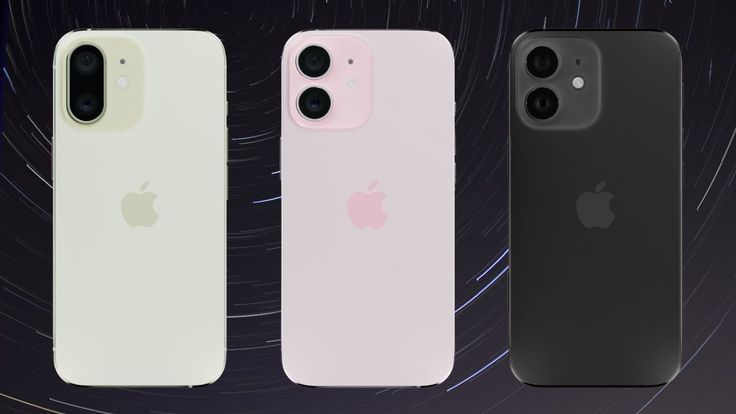Why Did Apple Skipped iPhone 9
In the ever-evolving world of smartphones, Apple stands out not only for its innovative technology but also for its unique branding strategies. From the iconic iPhone 1 to the sleek iPhone 8, each iteration brought something new to the table. However, when Apple made the bold move to jump from iPhone 8 straight to iPhone X, many consumers were left wondering: Why did Apple skip iPhone 9?
Naming Conventions in Apple’s History
Apple’s journey through its iPhone lineup has been marked by a series of incremental improvements and occasional leaps in technology. Starting with the groundbreaking iPhone 1, the company followed a numerical naming convention that seemed straightforward—until the introduction of iPhone X.
The progression from iPhone 1 to iPhone 8 was logical and incremental, reflecting the steady evolution of Apple’s technology. Each new model built upon its predecessor, enhancing features and refining design. However, the introduction of iPhone X marked a departure from this pattern, introducing not only a new design but also a new naming convention that would redefine Apple’s approach to its flagship products. Also, read about How to Pair Apple Pencil with iPad
The Launch of iPhone X
iPhone X was more than just another iteration of Apple’s flagship device—it represented a significant leap forward in both design and technology. With its edge-to-edge display, facial recognition technology, and enhanced camera capabilities, iPhone X set a new standard for smartphones. Its launch not only captured the attention of tech enthusiasts but also signaled Apple’s readiness to embrace the future of mobile technology.
Consideration of Numbering
One of the most intriguing questions surrounding Apple’s decision to skip iPhone 9 is the significance of the number itself. In many cultures, the number ‘9’ holds positive connotations—symbolizing completeness, fulfillment, and success. So why would Apple choose to skip such a culturally significant number?
From a branding perspective, Apple’s decision to skip iPhone 9 may have been influenced by several factors. Firstly, iPhone X represented a major technological leap over its predecessors, making a simple numerical continuation seem inadequate. Secondly, by skipping directly to iPhone X, Apple created a sense of exclusivity and innovation that helped differentiate its flagship product from competitors.

Marketing and Perception
In the highly competitive world of smartphones, branding plays a crucial role in shaping consumer perception. By skipping iPhone 9 and introducing iPhone X, Apple effectively positioned its flagship product as not just another iteration but as a symbol of cutting-edge technology and innovation. This strategic move allowed Apple to generate buzz and excitement among consumers, driving demand and reinforcing its reputation as a leader in the industry. Discover more about How to Turn Off Apple Watch
Technical and Design Considerations
Technological advancements between iPhone 8 and iPhone X were substantial, particularly in terms of design and functionality. iPhone X introduced a new design language with its edge-to-edge OLED display and Face ID technology, setting it apart from previous models. These innovations justified Apple’s decision to break away from its traditional naming convention and underscored the significance of iPhone X as a milestone in smartphone development.
Consumer Expectations and Reactions
When Apple announced the launch of iPhone X instead of iPhone 9, it sparked a range of reactions from consumers and tech enthusiasts alike. Some welcomed the innovation and forward-thinking approach, viewing iPhone X as a bold statement of Apple’s commitment to pushing the boundaries of technology. Others were puzzled by the leap in naming and questioned the rationale behind skipping a seemingly logical progression.
Global Cultural Considerations
The decision to skip iPhone 9 also reflected Apple’s awareness of global cultural considerations. In certain cultures, the number ‘9’ holds particular significance, symbolizing longevity, prosperity, and good fortune. By skipping iPhone 9, Apple may have sought to avoid potential cultural misinterpretations or simply chosen to align its branding strategy with global market trends and preferences.
Competitive Landscape
In the competitive landscape of smartphone manufacturers, Apple’s decision to skip iPhone 9 was not made in isolation. Competitors such as Samsung, Google, and Huawei have also adopted unique naming strategies for their flagship devices, each aiming to differentiate themselves in a crowded market. By skipping iPhone 9 and introducing iPhone X, Apple positioned itself as a trailblazer in innovation, setting a new standard for competitors to follow.
Psychological Implications
From a psychological standpoint, skipping numbers in product naming can have both positive and negative implications. On one hand, it can create a sense of novelty and exclusivity, driving consumer interest and demand. On the other hand, it may confuse consumers who are accustomed to a linear progression in product naming. Apple’s ability to navigate these psychological nuances and successfully market iPhone X as a revolutionary product speaks to its understanding of consumer behavior and preferences.

Long-term Brand Strategy
Looking ahead, Apple’s decision to skip iPhone 9 can be seen as part of a broader long-term branding strategy. By continually innovating and redefining its flagship products, Apple aims to maintain its position as a leader in the smartphone industry. Whether future iterations follow a numerical progression or introduce new naming conventions remains to be seen, but one thing is clear: Apple’s commitment to pushing the boundaries of technology and design will continue to shape the future of smartphones.
Conclusion
In conclusion, the decision to skip iPhone 9 and introduce iPhone X was driven by a combination of factors, including technological advancements, branding strategy, and global market considerations. By leapfrogging from iPhone 8 to iPhone X, Apple not only signaled a major evolution in its flagship product but also set a precedent for future innovation. While the move may have initially raised eyebrows, it ultimately reinforced Apple’s reputation as a pioneer in the tech industry. As Apple continues to innovate and redefine the smartphone landscape, one thing is certain: the legacy of iPhone X will continue to influence the future of mobile technology for years to come.
FAQs
Why did Apple skip iPhone 9 and go straight to iPhone X?
Apple chose to skip iPhone 9 primarily to signify a significant leap in technology and design with iPhone X. The new naming convention emphasized the revolutionary changes introduced with iPhone X, such as the edge-to-edge display and Face ID.
Was skipping iPhone 9 a marketing strategy?
Yes, skipping iPhone 9 was a strategic move by Apple to create buzz and emphasize innovation. By jumping to iPhone X, Apple positioned its flagship product as cutting-edge and exclusive, generating excitement among consumers and reinforcing its brand image as a leader in technology.
Did consumer reactions influence Apple’s decision to skip iPhone 9?
Consumer reactions were mixed. Some welcomed the change, seeing it as a bold step forward, while others were puzzled by the break in numerical sequence. However, Apple’s focus on technological advancements and market positioning played a more significant role in the decision.
What cultural considerations influenced Apple’s naming decision?
Apple’s decision to skip iPhone 9 also considered global cultural perceptions of numbers. In some cultures, the number ‘9’ holds positive meanings like longevity and prosperity. By avoiding potential cultural misinterpretations and aligning with global branding trends, Apple aimed to maintain its market appeal worldwide.
Will Apple continue this naming strategy in future iPhone releases?
Apple’s naming strategy for future iPhone releases remains flexible and based on market dynamics. While iPhone X set a precedent for skipping numbers to denote significant updates, future naming conventions could evolve based on technological advancements and consumer preferences. Apple’s commitment to innovation will likely continue shaping its branding strategy in the smartphone industry.
















